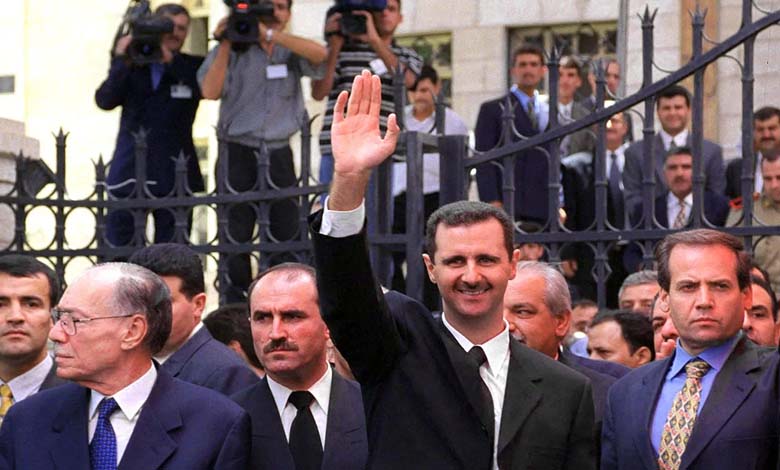Key Leaders of the “al-Assad Regime”: Where Are They Now?

After the fall of Bashar al-Assad’s regime to the Syrian armed opposition a few days ago, many senior officials and members of intelligence and security agencies have disappeared, with their fate remaining unknown.
-
The fall of Al-Assad Sparks Political Debate in Iran
-
After Al-Assad’s Fall… Syria Closes Its Doors to the Houthis
Ahmed al-Sharaa, known as “Abu Mohammad al-Jolani,” leader of “Hayat Tahrir al-Sham,” pledged to bring to justice those responsible for what he called “violations” committed under the previous regime. He stated: “We will pursue them in our country and will also request foreign countries to hand over any suspects.”
However, locating those responsible may prove challenging. Activists report that some have fled the country, while others have gone into hiding in their hometowns.
-
Al-Assad’s Fall Weakens Iran but Doesn’t End Its Capabilities in the Middle East
-
“Bashar al-Assad’s Fall: The Map of Armed Groups Under the Banner of ‘Hay’at Tahrir al-Sham’”
Lebanese security officials and a judicial officer told Associated Press that about 8,000 Syrian nationals crossed the border at the Masnaa crossing into Lebanon in recent days, while approximately 5,000 Syrians left Lebanon through Beirut International Airport. Most of these individuals are presumed to be ordinary civilians.
Lebanese Interior Minister Bassam Mawlawi stated earlier that no Syrian officials had entered Lebanon through official border crossings.
-
Washington Warns al-Assad against Using Chemical Weapons in Response to His Defeats
-
Maher Al-Assad Abandons Hezbollah to Avoid Israeli Strikes
In an effort to prevent al-Assad government members from escaping, security officials said a Lebanese officer in charge of an oil plant was placed on leave due to his connections with al-Assad’s brother.
However, Rami Abdel Rahman, head of the UK-based Syrian Observatory for Human Rights, said several senior officers still managed to reach neighboring Lebanon using forged travel documents.
-
France Faces Backlash Over Arrest Warrant for al-Assad
-
Will the Arab Summit in Riyadh end al-Assad’s isolation?
Initially, this Western-educated ophthalmologist raised hopes that he would not follow in the footsteps of his strongman father, Hafez, when he took power in 2000. However, when protests erupted against his regime in March 2011, al-Assad resorted to crushing the opposition.
Nearly 13 years later, Bashar al-Assad fled to Moscow, according to official Russian media, following a swift offensive by armed opposition forces late last month.
-
Al-Assad meets Khamenei and Raisi in Teheran – Details
-
Syria, Victim of its Geography: Why Does It Continue to Suffer?
Maher al-Assad
The younger brother of the former president, commander of the Fourth Armored Division, was accused by Syrian opposition activists of murder, torture, extortion, and drug trafficking, in addition to running private detention centers. He is under US and European sanctions.
Maher reportedly disappeared over the weekend, but the director of the Syrian Observatory for Human Rights stated that he had arrived in Russia.
Last year, French authorities issued an international arrest warrant for Maher al-Assad, along with his brother and two army generals, for complicity in war crimes and crimes against humanity.
-
Israel Prepares for Worst-Case Scenarios in Syria
-
From Al-Qaeda’s veil to the political shirt: Who is Abu Mohammed al-Julani?
General Ali Mamlouk
Ali Mamlouk, a former intelligence chief and security advisor to al-Assad, is wanted in Lebanon for his role in two bombings in 2012 in Tripoli, northern Lebanon, which killed and injured dozens.
He is also wanted in France, where he was convicted in absentia of complicity in war crimes and sentenced to life imprisonment. The trial focused on his role in the arrest, torture, and subsequent murder of a Franco-Syrian man and his son in Damascus in 2013.
Rami Abdel Rahman added that Mamlouk fled to Lebanon, but it is unclear whether he remains there under Hezbollah’s protection.
-
Washington Follows the Events in Syria… What about “Hayat Tahrir al-Sham”?
-
A New Study Outlines Possible Scenarios for Syria’s Future
General Suheil al-Hassan
Suheil al-Hassan, commander of the 25th Special Forces Division, played a key role in many “government victories” after 2011, including in Aleppo and the eastern suburbs of Damascus.
Known for his close ties to Russia, he was praised by Vladimir Putin during a visit to Syria. However, his current whereabouts remain unknown.
-
Ukraine and Lebanon: Two Separate Wars That Changed Syria’s Fate
-
Timeline of Events in Syria: How Did Damascus Fall into Rebel Hands?
General Hossam Louka
Hossam Louka, head of Syria’s General Intelligence, played a major role in the crackdown on armed opposition, especially in Homs, dubbed the “capital of the Syrian revolution.”
The US and UK imposed sanctions on Louka for his role in the repression. His current whereabouts are unknown.
General Qahtan Khalil
Qahtan Khalil, former head of Air Intelligence, is also missing, with his fate remaining uncertain.












